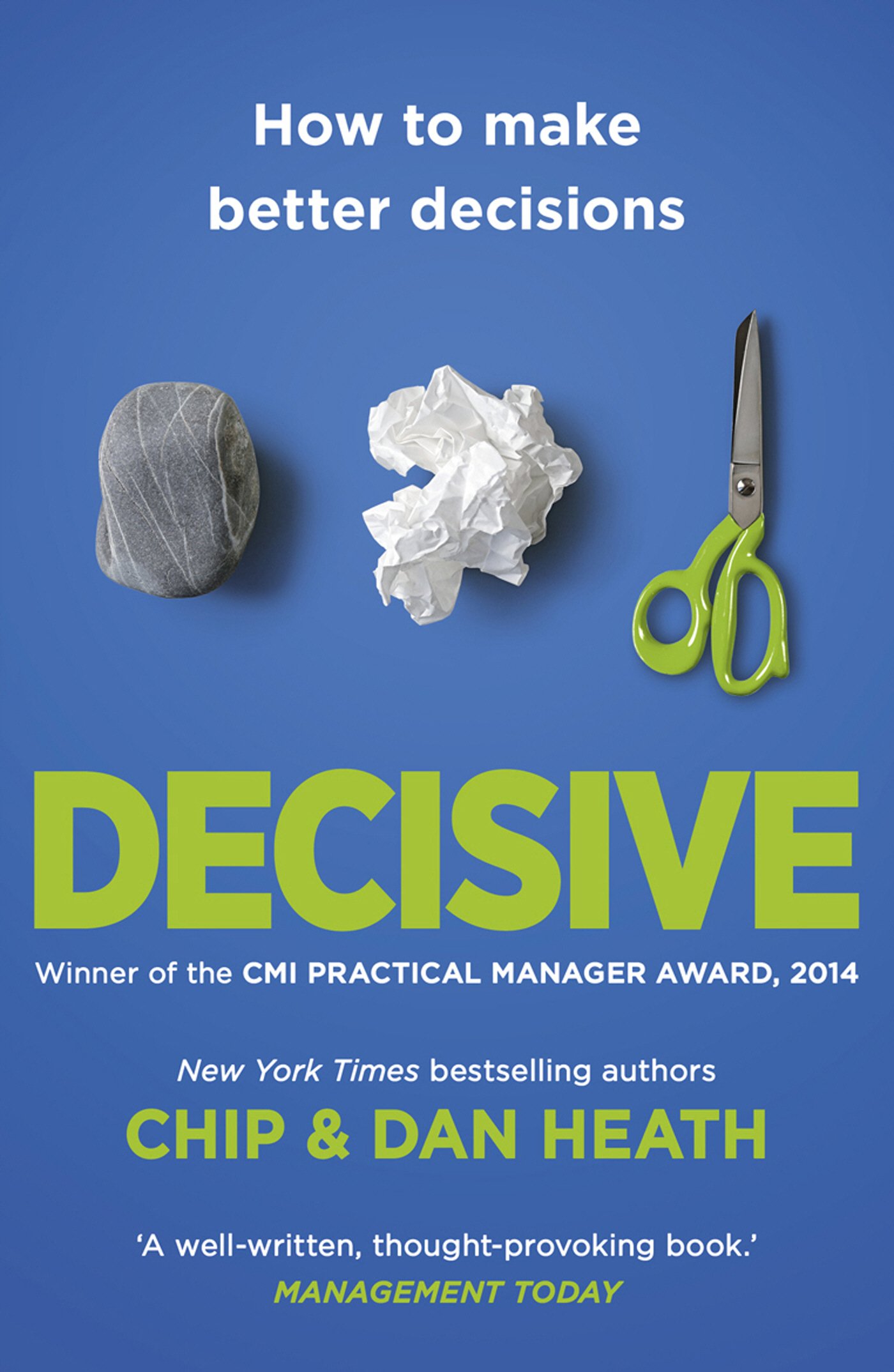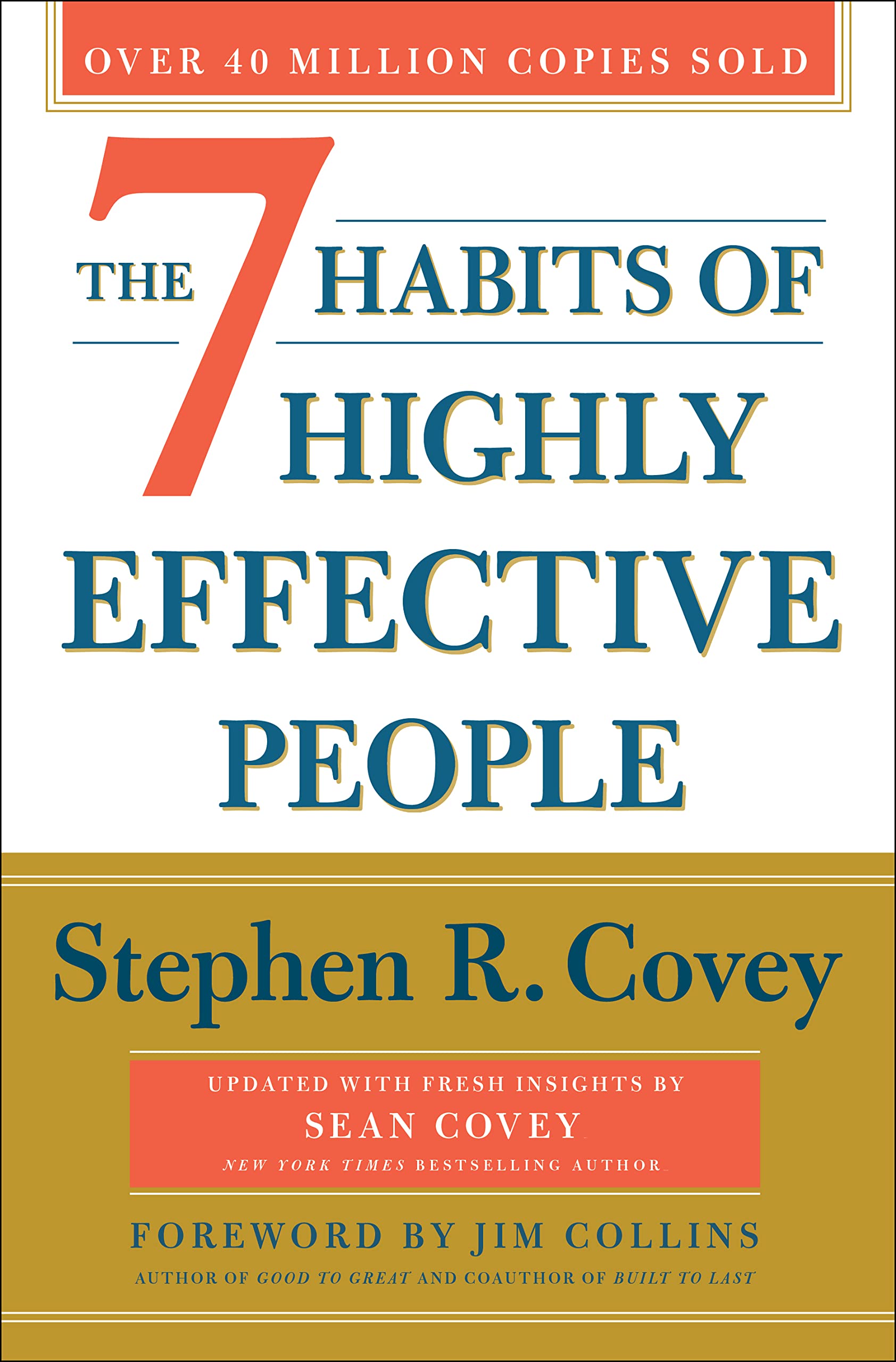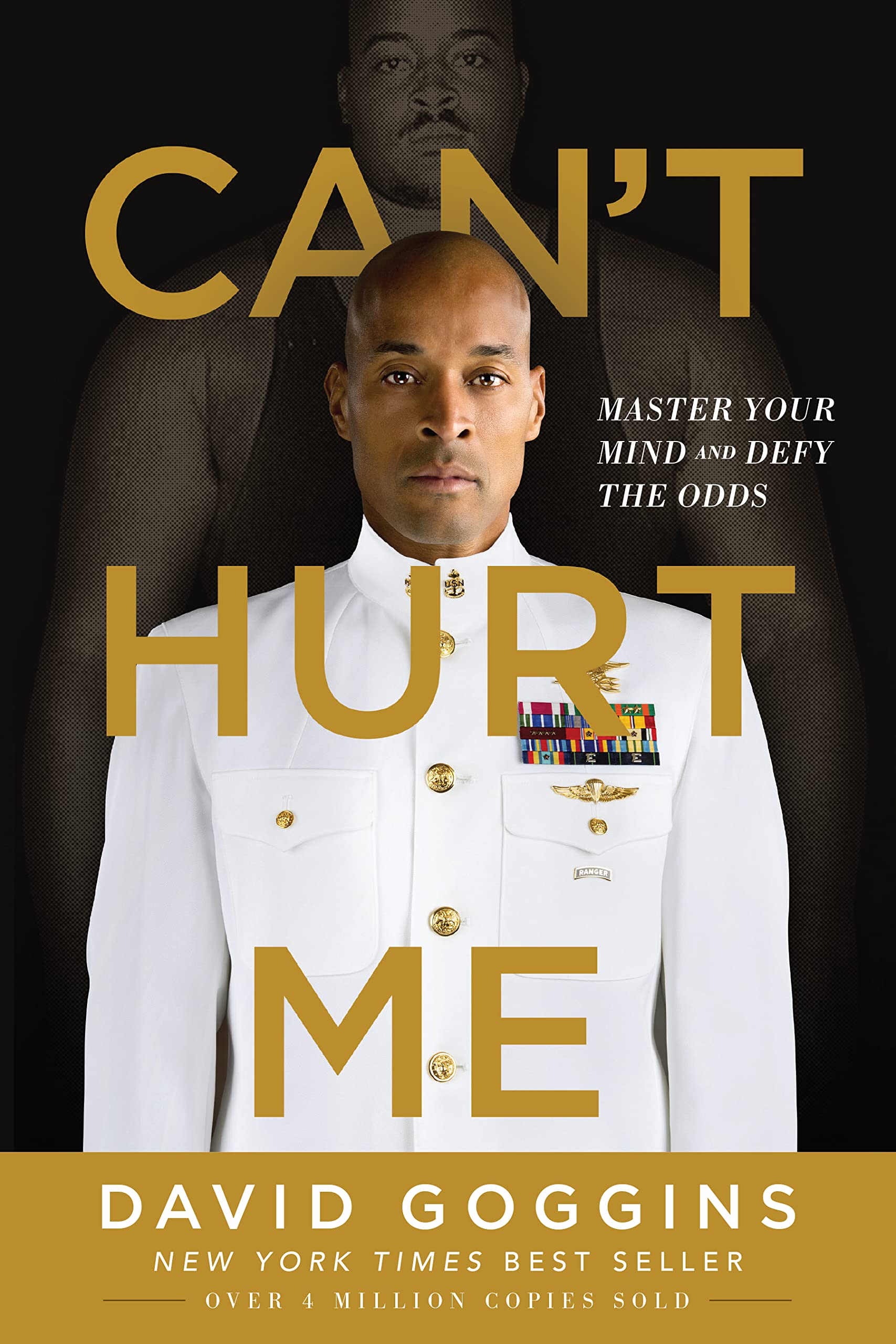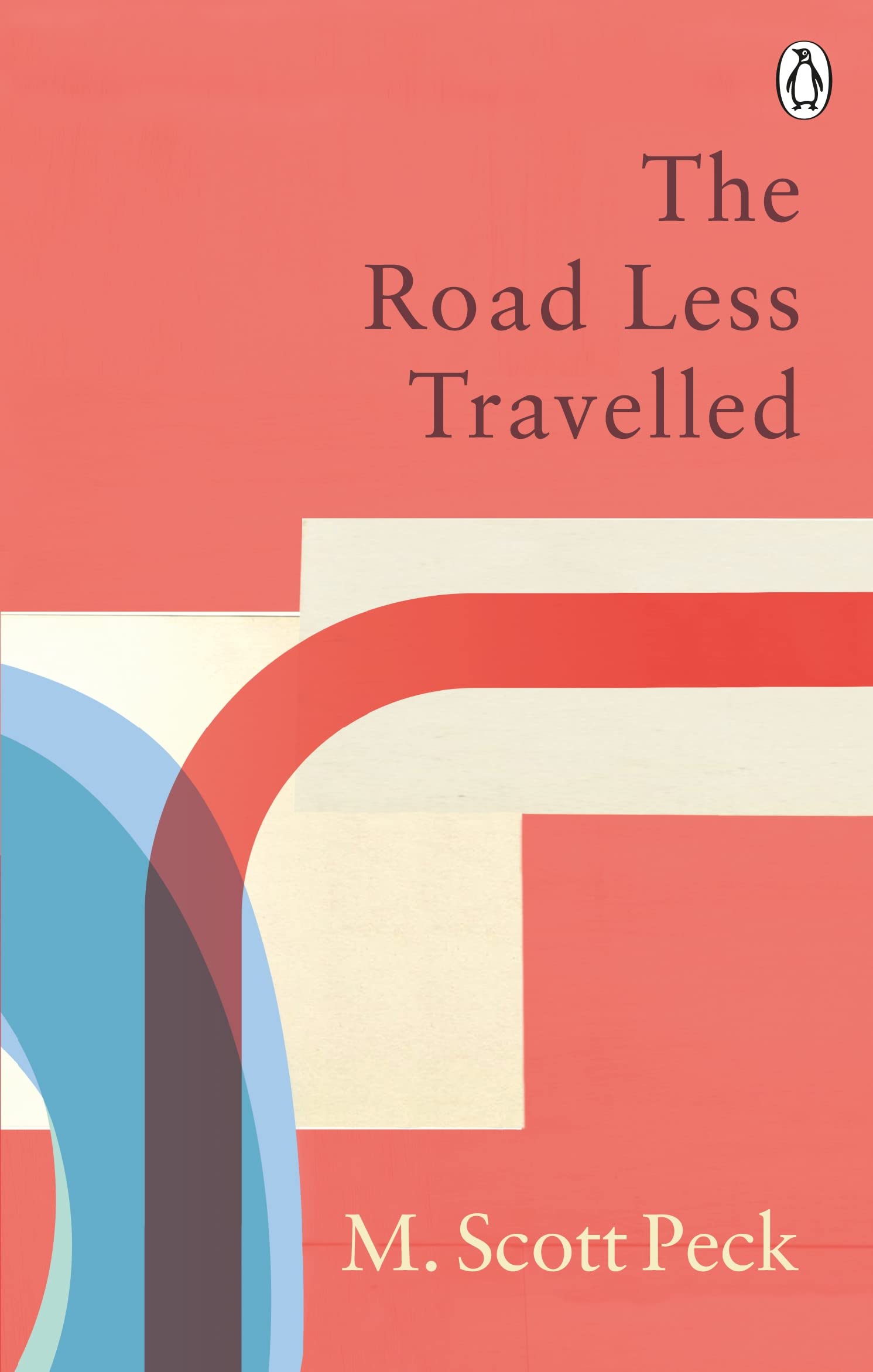Do you know the four reasons most people make bad decisions?

Decisive by Chip & Dan Heath is a clear and concise book on the theme of decision making, and how the process is often led astray. The authors introduce four common flaws in decision making and then describe ways to help mitigate them. This book is a good companion to the slightly more dense Thinking, Fast and Slow.
4 flaws of decision making:
- Narrow framing: usually by making decision binary
- You should have alarm bells if ever deciding whether to “do something or not”
- Look for a way to go for “and”, or at least for other options
- Imagine that you can’t do any of the options you are considering
- Most people don’t (automatically) consider opportunity costs (e.g. don’t buy this and keep £x for other purchases)
- Look for someone else who is struggling with a similar problem and how can you learn from them?
- Intuition is good when it has been learnt by rapid feedback, clear feedback about right or wrong, and making the decision doesn’t bias the outcome. E.g. useful when predicting the weather vs. unhelpful for decisions in A&E
- You should have alarm bells if ever deciding whether to “do something or not”
- Confirmation bias
- Therefore, you need to actively challenge your assumptions
- Ask yourself “what would have to be true for this option to be right?”
- Create, or seek out negative opinions to your option
- What is the most likely way to fail by not getting the right information
- Assume positive intent when people give you criticism; this will help you listen to them
- Consider base rates (e.g. the typical percentage success of a similar kind of project) and think very carefully about why you might or might not be any different
- Don’t forget how terrible our predictions tend to be
- Therefore, you need to actively challenge your assumptions
- Short term emotions disturb decision making that usually requires long-term perspective
- Get ‘distance’ before deciding whether to proceed by considering the consequences of decision in 10min/10months/10yrs time
- Short term emotion isn’t necessarily wrong, just make sure that it’s not the only input into the decision
- Acknowledge the existence of loss aversion (that we are disproportionately reluctant to give up something we have) and familiarity bias (that we are overly drawn to familiar things)
- Ask yourself: how would you advise your best friend?
- Define and then take your core principles into account, which helps simplify other future decisions
- Overconfidence (about the future)
- Prepare to be wrong and factor everything taking 1.5x as long or costing 1.5x more, for example
- Consider specific high/low estimates for the relative success (‘bookending’)
- Use a premortem (or prospective hindsight) to think about reasons why something might have failed
- Use ‘realistic job previews’ (to include the bad bits about a job) when advertising jobs
- Set ‘tripwires’ to re-evaluate poor decisions particularly in face of gradual change (i.e. don’t be the frog)
The evidence base for this book, Nudge (by Richard Thaler) and Thinking, Fast and Slow is the same – hence they end up being relatively similar. But they do approach it from different perspectives and therefore the texts complement each other. Plus, all such books emphasise how terrible we are at making good decisions (mostly) so reinforcement from multiple books on the subject is probably sensible.
More books like this:
- Nudge by Richard Thaler
- Thinking, fast and slow by Daniel Kahneman
Useful links:





One thought on “Decisive by Chip & Dan Heath”
Comments are closed.